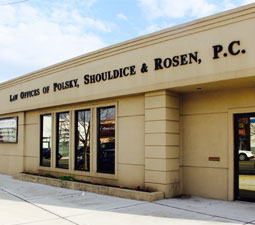As a wrongful death attorney Memphis, TN turns to in the most serious cases, one argument that we have seen defendants make in wrongful death and personal injury cases is that the defendant isn’t liable because something else happened later that really caused the death or injury, even if the defendant was initially negligent in some regard.
In many states, the “Intervening Cause Doctrine” operates to relieve a negligent actor from liability when a new, independent and unforeseen event occurs and intervenes to produce a result that the negligent actor could not have reasonably foreseen. The doctrine applies only when the intervening cause (1) was enough by itself to cause the injury, (2) was not reasonably foreseeable, and (3) was not a normal response to initial conduct causing the injury. When the above elements are met, the intervening event is said to be a superseding cause and relieves the defendant of liability to the plaintiff.
Consider this fact pattern from a recent Tennessee case in the workers’ compensation injury context:
- A Carpenter sustained injuries to his neck and lower back in a motor vehicle accident during the course of his employment. He received neck surgery and was prescribed pain medication for his back pain.
- The Carpenter died a little over a year later due to acute oxycodone toxicity with contributing causes of hypertension, tobacco use, and alcohol use.
Following the Carpenter’s death, his wife sought workers’ compensation death benefits (in addition to the original injury benefits), arguing that his death was a direct and natural consequence of his original work injury.
The Tennessee Supreme Court, in Judy Kilburn v. Granite State Insurance Company, et al., concluded that the Carpenter’s overconsumption of his medication and use of alcohol while taking his medication in contravention of his doctor’s instructions was an independent intervening cause, which rendered his death non-compensable in the workers’ compensation case.
The Court explained that normally all the medical consequences that flow from an original compensable injury are compensable but that a later injury is not compensable if it is the result of an independent intervening cause, such as the Carpenter’s own conduct. An independent intervening cause can be reckless or intentional misconduct or negligence. The independent intervening cause, in this case, was due to the Carpenter’s own conduct in refusing to take his medication in accordance with his doctor’s instructions.
If you need help with your personal injury or wrongful death case, contact the wrongful death attorney for help.
Thanks to our friends and contributors at Patterson Bray PLLC who have significant experience litigating wrongful death and personal injury cases for victims in Tennessee.


